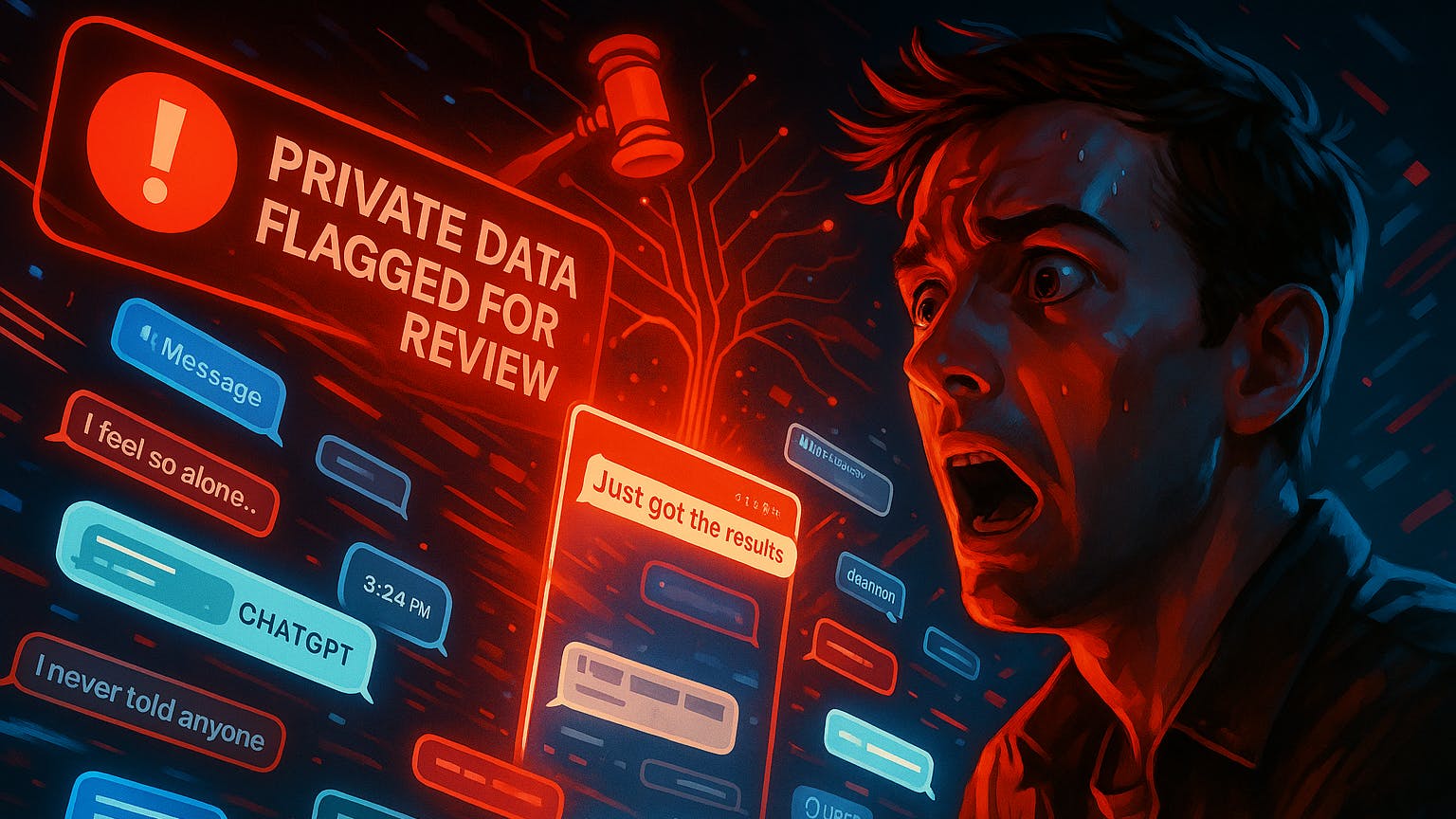What if everything you typed, every prompt, joke, confession, or idea, was permanently on record?
Because it is.
In July 2025, a quiet legal ruling may have just rewritten the boundaries of digital memory.
A U.S. federal court ordered OpenAI to preserve all ChatGPT conversations indefinitely, including ones users thought were deleted under the 30-day policy.
No headlines. No hearings. No opt-out.
Just a silent shift toward surveillance permanence.
And if you think this only affects AI nerds and early adopters, think again.
This is the moment we stop being users and start being witnesses.
To our own conversations.
On record.
Forever.
🧨 The Illusion of Deletion
ChatGPT gave users a familiar illusion: that deleting a chat meant erasing a trace.
But now we know, it didn’t.
Under this order, deleted chats aren’t really gone. They’re just hidden from view.
The AI remembers. And now, so does the U.S. government.
For users across Free, Plus, Pro, and Team plans, this creates an uncomfortable truth:
🗣️ Every late-night thought? Logged.
💡 Every pitch, brainstorm, or unfinished idea? Stored.
🧠 Every personal reflection typed in trust? Indexed.
Whether you were experimenting with prompts, writing fiction, or stress-testing legal ideas — it’s all been kept.
Not because OpenAI wants to sell it.
Because the court said:preserve it all.
🕳️ What Happens When Memory Becomes Infrastructure?
We’ve entered a new phase of AI, one where digital memory becomes not just a feature, but a liability.
AI companies promised:
✅ “Your data is safe.”
✅ “You control your conversations.”
✅ “You can delete anything.”
Turns out, those promises were temporal.
Now, the infrastructure is being shaped not by privacy policies, but by subpoenas.
Imagine a future where:
🔍 Your ChatGPT logs are admissible in court
👥 Your anonymous queries are unmasked
🧾 Your deleted drafts are rediscovered, by someone else
This isn’t paranoia. It’s precedent.
🧭 The Ronnie Huss POV
I’ve built at the edge of AI, Web3, and data infrastructure for over two decades.
Here’s the uncomfortable truth:
If memory becomes permanent and centralized, privacy becomes performative.
This isn’t about OpenAI.
It’s about architecture.
When your conversations live in a black box, subject to legal pressure, you’re not using a tool — you’re training a witness.
We’ve already seen the dangers:
- DMs subpoenaed in lawsuits
- Deleted tweets resurfaced
- Offhand prompts cited out of context
The AI doesn’t need to leak. The system just needs to comply.
And compliance is programmable.
This is why decentralized AI matters.
Why ephemeral memory isn’t a UX choice, it’s a civil liberty.
If we don’t control the memory layer, we don’t control the narrative.
🧠 The Strategic Shift: AI x Privacy Must Go On-Chain
Here’s what forward-thinking builders should prioritize:
🔒 Ephemeral compute: Sessions that self-destruct by design
🧱 Zero-knowledge prompting: Prove interaction without revealing content
🛠 Personal LLMs: Run models locally or on-chain, with no server memory
🌐 Decentralized data vaults: User-owned memory, not corporate archives
Because here’s the future we’re headed toward:
📁 AI won’t just remember your past.
⚖️ It may be forced to reveal it.
The next great innovation won’t be in bigger models.
It’ll be in smaller footprints, andprovable forgetfulness.
💡 Final Thought: The Right to Be Forgotten Will Be the New Frontier of Freedom
We built AI to make us more productive.
But somewhere along the way, we started giving it custody of our minds.
Now we face a stark choice:
Do we optimize for convenience?
Or do we fight for control?
Because the future isn’t just about what AI can remember.
It’s about what we’re still allowed to forget.


